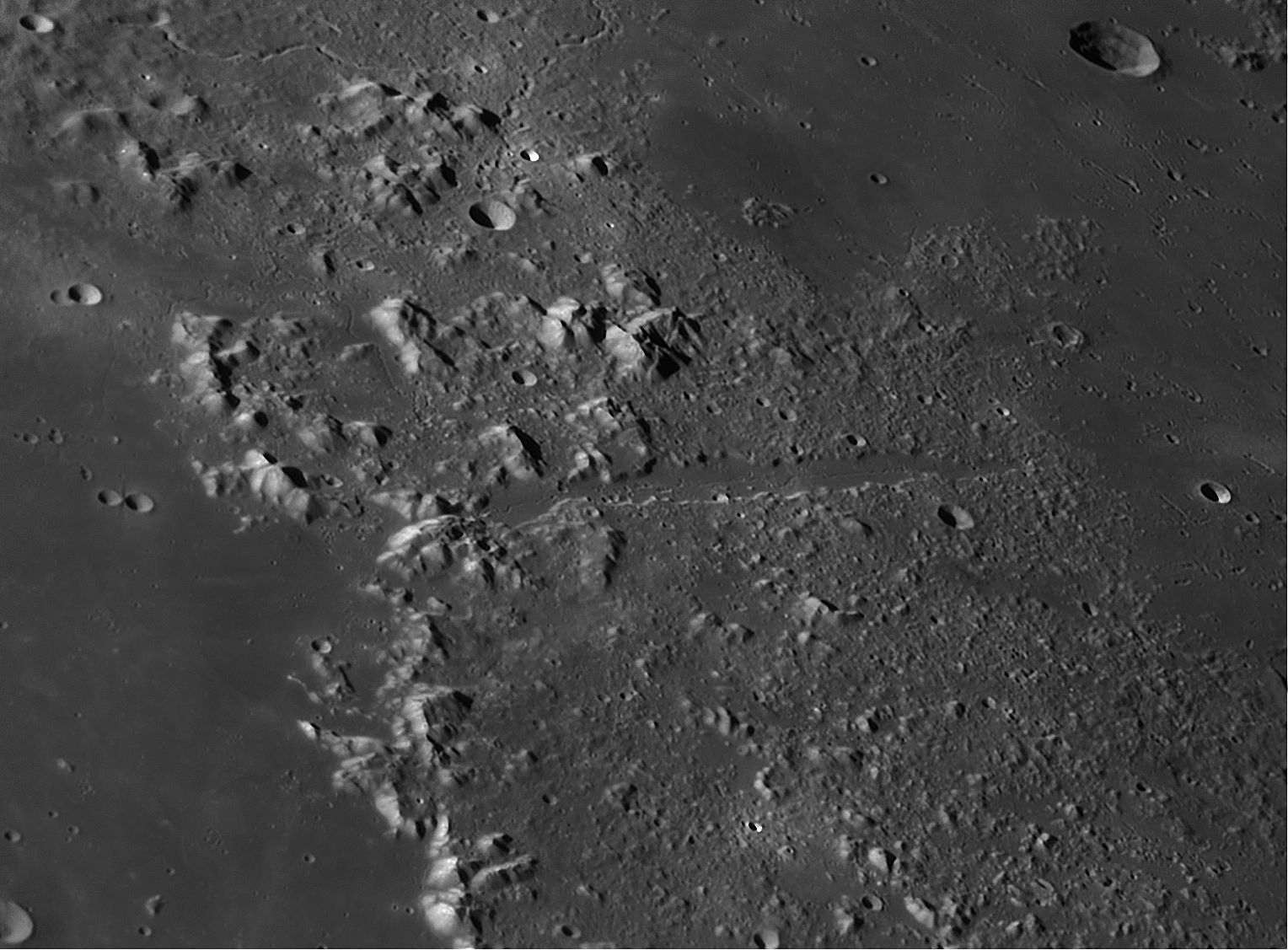
amazing image by Wes Higgins
It has often been said that the publication of Beer and Madler’s Mappa Selenographica and companion volume Der Mond stiffled lunar research for decades because no one thought improvement was possible. I fear that some lunar imagers might have the same response, and hang up their cameras, after seeing this extraordinary image. Wes has apparently perfected the art of capturing extreme lunar detail from the plains of Oklahoma. The rille on the floor of the Alpine Valley is seen to not be the only features there, for small pits occur clustered in places like secondary craters. Multiple componentts of the Plato Rilles are clearly seen snaking through Imbrium Basin rubble in the top left quarter of the image, and a tiny rille segment hugs the base of the Alps Mountains at the southern edge of the image. And up in the upper right corner is the crater Protagoras, looking like a deep open-pit mine in Arizona. Finally, the dark piece of Mare Frigoris just north of the Alpine Valley looks like it could be pyroclastic deposits. It would fascinating to have such high resolution, large scale images of the Moon under very high solar illumination to trace out pyroclastic deposits…oh, it's full Moon this week…
Technical Details:
August 3, 2007, 10:41 UT. 18″ Reflector, Infinity 2-1m camera, MAP processing.
Related Links:
Rükl plate 4
Yesterday's LPOD: The Beginning of Lunar Science
Tomorrow's LPOD: A New Lunar Book; It's Free
COMMENTS?
Register, Log in, and join in the comments.



